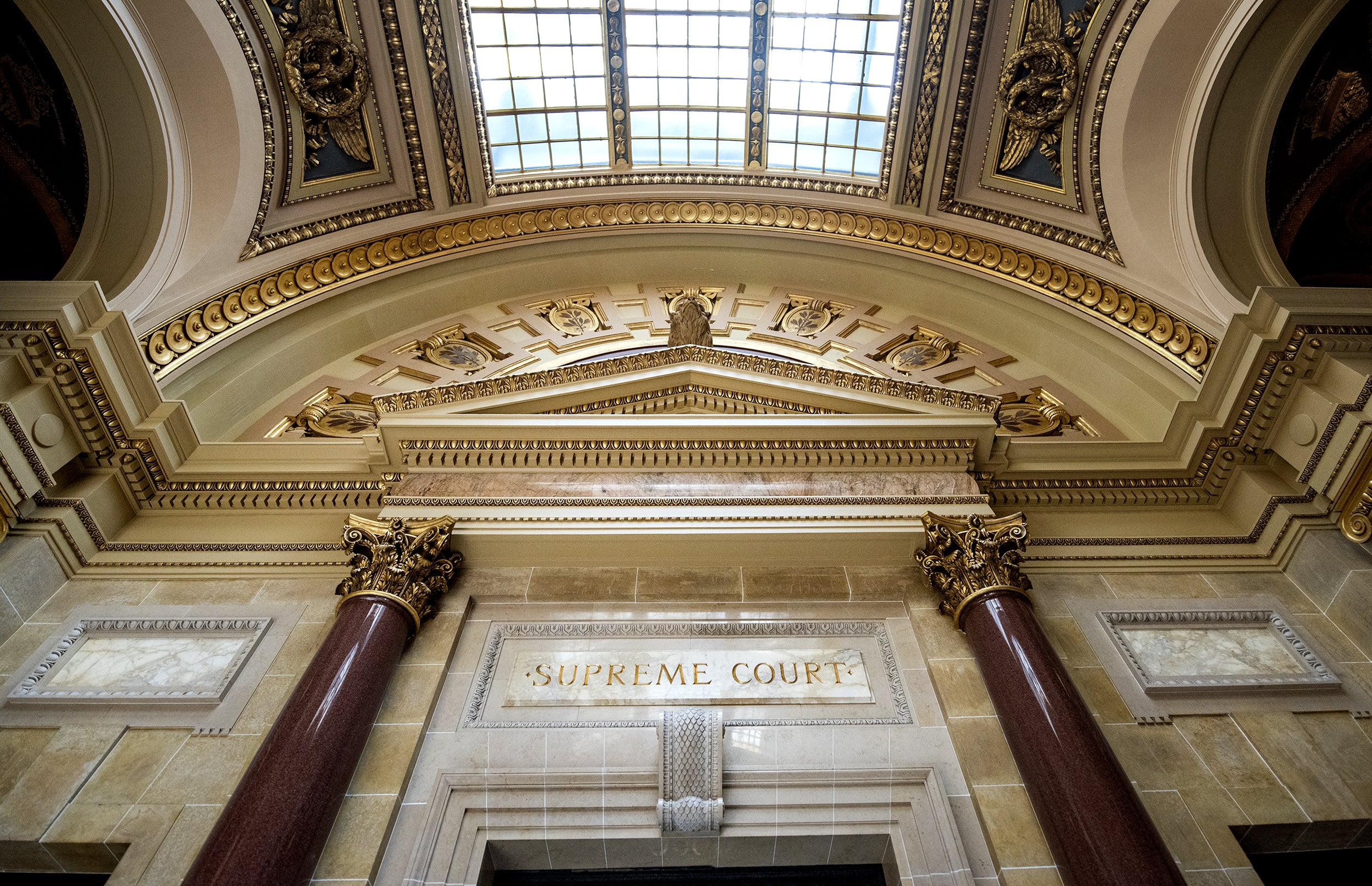The Wisconsin Supreme Court has ruled in favor of a conservative advocacy group in a case that will shift oversight of some school policies from the state schools superintendent to the governor.
The court ruled 4-2 in the case that began when Gov. Tony Evers was state schools superintendent and former Gov. Scott Walker was in office.
In the case, then-superintendent Evers argued he didn’t need to get executive approval for rules he wrote for the state Department of Public Instruction, despite a state law called the REINS Act, which requires state agencies to get approval from the governor’s office and state Department of Administration, which is controlled by the governor.
News with a little more humanity
WPR’s “Wisconsin Today” newsletter keeps you connected to the state you love without feeling overwhelmed. No paywall. No agenda. No corporate filter.
The Wisconsin Institute for Law and Liberty filed the lawsuit in 2017, arguing Evers, as superintendent, wasn’t following the law adopted that same year.
Evers argued the state schools superintendent is a publicly elected, rather than appointed, state officeholder with executive power, thereby allowing him to circumvent the REINS requirement.
The court rejected that argument.
The decision split along the court’s ideological lines, with conservatives writing the majority opinion.
“Article X, Section 1 vests supervision of public instruction, an executive function, in the (superintendent),” the opinion reads. “In contrast, when the (superintendent), through the (Department of Public Instruction), promulgates rules, the (superintendent) is exercising legislative power that comes not from the constitution but the legislature.”
Conservative Justice Rebecca Bradley wrote a consenting opinion with the majority, but noted an area of disagreement.
“I join the opinion except for those portions espousing the ostensible importance and necessity of the legislature’s delegation of power to the administrative state,” Bradley wrote. “The concentration of power within an administrative leviathan clashes with the constitutional allocation of power among the elected and accountable branches of government at the expense of individual liberty.”
Justice Shirley Abrahamson withdrew from the case. Liberal Justices Ann Walsh Bradley and Rebecca Dallet dissented, with Bradley writing the minority opinion.
Bradley pointed out the court heard a similar case about executive approval of administrative rules in 2016. In that case, Coyne v. Walker, the court ruled 4-3 against the governor’s power to act as a clearinghouse for agency rules.
“Yet despite this clear mandate, here we are again. A provision that does the very same thing as Act 21 is back before the court,” Bradley wrote. “It comes to us through a new enactment (2017 Wis. Act 57) and with a catchy new name (the REINS Act), but the substance is identical.”
Bradley pinned the decision on the ideological changes in the court since 2016. Justices who ruled then have since left the court.
“Although nothing in our Constitution has changed since Coyne was decided, what has changed is the membership of the court,” she wrote. “This time around, a new majority of this court does an about-face and now concludes that the substance of Act 57 is constitutional. To reach this conclusion, it throws the doctrine of stare decisis out the window.”
Evers issued a statement with a similar reaction Tuesday afternoon.
“This issue was already decided three years ago in Coyne v. Walker. Both conservative and liberal justices agreed then that the constitution prevented the governor from vetoing rules overseeing public schools,” Evers said. “The facts didn’t change in the last three years and neither did the meaning of the constitution. Only the composition of the court did.”
The Wisconsin Institute for Law and Liberty lauded the ruling Tuesday morning. The organization brought the case on behalf of a public school teacher, Kristi Koschkee, who said she was “thrilled” by the decision.
“As a public school teacher and taxpayer, I am thrilled that the Wisconsin Supreme Court has recognized that the Superintendent of Public Instruction must follow the law and allowed for greater oversight on the Department of Public Instruction, an agency that is notoriously hostile to K-12 education reform,” Koschkee said in a prepared statement.
Wisconsin Public Radio, © Copyright 2025, Board of Regents of the University of Wisconsin System and Wisconsin Educational Communications Board.






